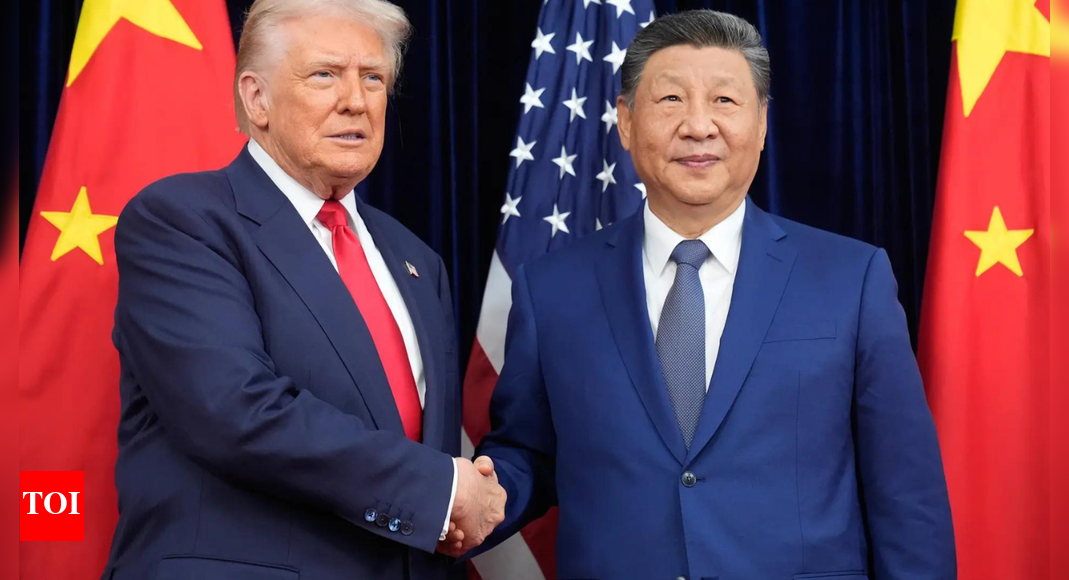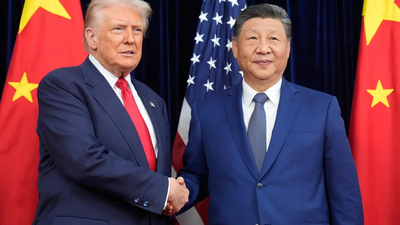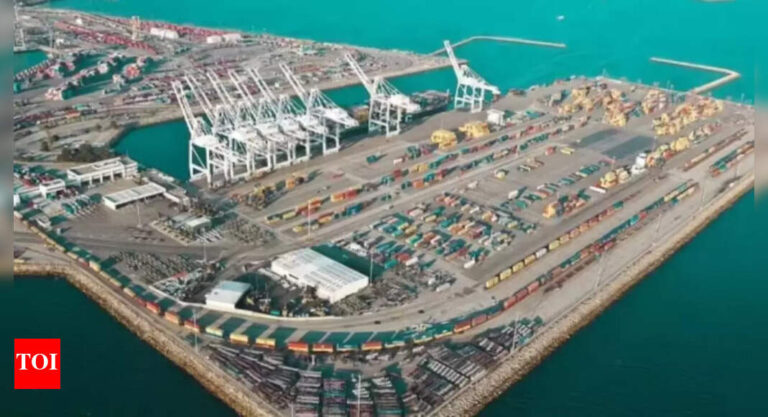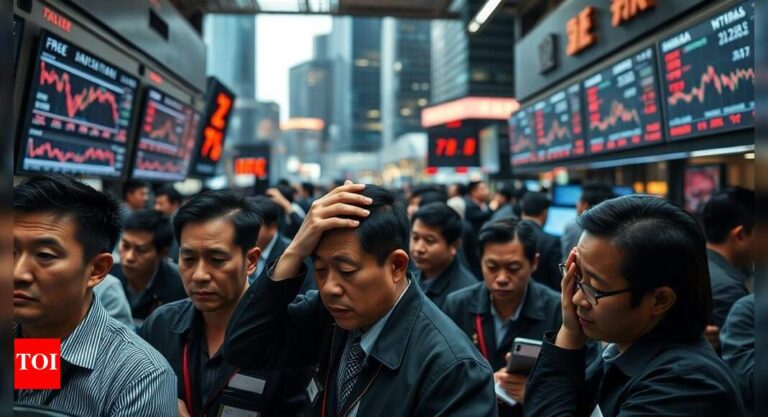
US President Donald Trump hinted at the possibility of a trade deal between US and China as he meets Xi Jinping in South Korea for a high-stakes talks, amid looming tariffs and trade tensions.When asked by a reporter, “Mr President, do you plan to sign a trade deal today?” Trump replied saying, “could-be”. Further making a remark on their ties he added, “We all have a great understanding.”“”I think we’re going to have a fantastic relationship for a long period of time, and it is an honor to have you with us,” further added Trump, while calling Xi a “very tough negotiator”, before they went ahead to hold the anticipated talks.Meanwhile, when the two leaders sat down for talks, Xi Jinping seemed to strike a conciliatory tone, reading from prepared remarks that pointed to Beijing’s apparent desire to manage tensions constructively. “Given our different national conditions, we do not always see eye to eye with each other,” Xi said through a translator. “It is normal for the two leading economies of the world to have frictions now and then.”Also read: Donald Trump-Xi Jinping meet in South Korea – top quotesThe Trump–Xi meeting in Busan comes amid a fragile and complex phase in US–China relations, marked by deep trade frictions, strategic mistrust, and competing economic interests. The two sides have spent months trading tariffs and accusations even as they quietly explore the possibility of a new framework for cooperation. Trade remains the most immediate fault line. Earlier this month, Beijing imposed sweeping export controls on rare earths — a critical sector it dominates and one that underpins global defence, automotive and electronics manufacturing. Washington responded with threats of 100 per cent tariffs on Chinese goods, reviving fears of another tit-for-tat trade spiral. Trump has since softened his position, acknowledging that such duties are “not sustainable” and signalling openness to a compromise. Another key sticking point is fentanyl. Since March, a 20 per cent tariff has stayed in place over what Washington describes as Beijing’s failure to curb the trafficking of the deadly opioid into the United States. But Trump has indicated the tariff could be lowered, citing signs of greater cooperation. Reports suggest Washington may halve fentanyl-related tariffs in exchange for stricter Chinese controls on precursor chemical exports. Beyond tariffs, the Busan meeting carries geopolitical undertones. The United States continues to push China to reduce energy imports from Russia and to maintain restraint over Taiwan, while Beijing seeks a US acknowledgment of its “One China” principle. Secretary of State Marco Rubio recently reaffirmed that Washington is “not walking away from Taiwan” even as trade negotiations continue, underlining how hard it will be to separate economics from security. Technology remains another flashpoint. Beijing wants Washington to ease export restrictions on advanced semiconductor chips vital for AI and high-performance computing. American chipmakers have warned that overzealous curbs could erode US competitiveness. Meanwhile, Trump’s order to transfer TikTok’s US operations to a domestic consortium — with a deal reportedly set to be finalised during the Busan talks — adds another layer of symbolism to the economic standoff. Despite these strains, both capitals have reason to de-escalate. Trump faces pressure from US farmers and manufacturers hit by disrupted supply chains, while China wants stability as it battles slowing growth and a property slump. A breakthrough in Busan could reopen tech trade, restore predictability for global markets, and provide political wins for both sides. As Trump put it, the moment could be “something very exciting for everybody” — but the stakes are high. The question now is whether optimism in Busan will translate into an actual deal that resets the tone of one of the world’s most consequential economic relationships.








